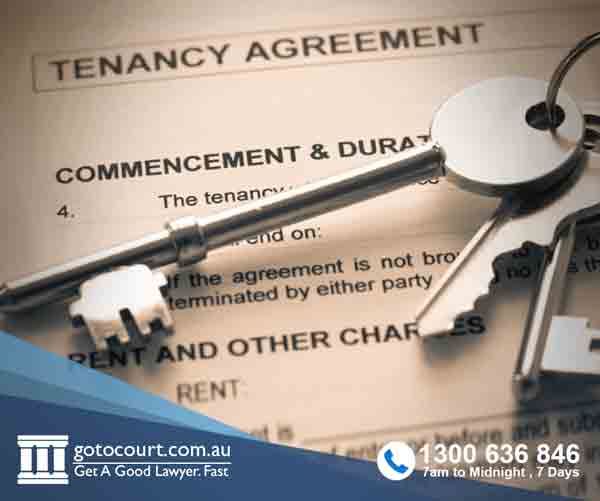Call our lawyers
now
or,
have our lawyers
call you
Landlord Right to Enter Premises (NT)
Updated on Nov 03, 2023 • 4 min read • 316 views • Copy Link
Landlord Right to Enter Premises (NT)
A residential tenant in the Northern Territory has the right to enjoy their leased property without continual interruption from the landlord. However, during a residential tenancy, a landlord does have a right to enter the premises under certain conditions. For instance, the Residential Tenancies Act 1999 allows a landlord to enter a rental property to perform repairs, conduct routine inspections, and show the property to prospective buyers or future tenants.
Tenant’s right to quiet enjoyment of property
While a landlord owns a rental property, the tenant has exclusive occupation of the premises during the term of the lease and is entitled to enjoy the property without disturbance. This means that a tenant is entitled to quietly enjoy their property without undue interruption from the landlord or their representatives. A landlord who breaches this term is liable for a 100 penalty unit fine.
Flatmates Rights
A landlord can access the premises at any point with the tenant’s permission. This is the best approach as the parties can arrange a mutually convenient time and day for the tenant to be present for the entry. Otherwise, a landlord has a right to enter premises for a valid reason when they give appropriate notice. For instance:
- To collect rent, if this is the agreed payment collection method. The landlord can only enter once a week to collect rent. In this circumstance, the landlord must give the tenant at least one week’s notice. If the tenant is in arrears, the landlord or an authorised debt collector can enter the property to collect rent.
- To conduct regular inspections, but only once every three months. The landlord and tenant can agree to longer intervals between inspections in the tenancy agreement. The landlord must arrange an inspection date and time with the tenant at least seven days prior to the entry.
- To carry out repairs and maintenance or inspect repairs. The landlord can only enter for this reason if the tenant informs them of a needed repair, or if they noticed damage or something needing a repair during an inspection. For repairs, the landlord must provide at least 24 hours’notice. Notably, the landlord can enter the premises without notice at any time to make emergency repairs or address significant damage to the premises.
- To prepare a condition report at the start or end of a tenancy. The landlord must notify the tenant at least 24 hours before entering the premises for this reason.
- To show the property to prospective buyers with 24 hours notice. The landlord must be reasonable and not constantly enter the premises to conduct viewings. If necessary, a tenant can seek an order from the Northern Territory Civil and Administrative Tribunal to limit the number of viewings.
- To show the property to prospective tenants in the last 28 days of a terminating lease. In this case, the landlord must give at least 24 hours notice before entry. The landlord should take the same approach as if the house is for sale and not constantly enter the premises to conduct viewings. The tenant has the same right to seek a tribunal order to restrict the number of viewings.
In any case, a landlord must not disrupt a tenant by entering rental premises before seven in the morning or after nine at night. There is no circumstance (except for emergency) when a landlord should disturb a tenant early in the morning or late at night.
Tenant’s right to be present
A landlord can only enter the premises with the tenant in attendance, unless:
- the tenant waives (in writing) their right to be present;
- the tenant unreasonably refuses to be present;
- The tenant fails to be present at the inspection time; or
- The entry is for an emergency reason or to address serious damage to the property.
A tenant cannot unreasonably impede a landlord or agent’s lawful entry into the premises. When this occurs, the landlord can apply to NTCAT for an order forcing the tenant to allow them entry. This order can also authorise the landlord to take reasonable means to enter (not including physical contact with the tenant or any other person present). The landlord must replace or compensate for any damage caused during their forceable entry. This does not apply to damage to property that a tenant uses to obstruct the landlord’s entry.
It can be difficult to understand the legal rights and responsibilities of landlords under the Residential Tenancies Act. Go To Court Lawyers can answer legal questions about a landlord’s right to enter premises in the Northern Territory. Our solicitors welcome enquiries from both tenants and landlords who need legal advice or representation. Please get in touch on 1300 636 846 today for legal assistance.

Affordable Lawyers
Our Go To Court Lawyers will assist you in all areas of law. We specialise in providing legal advice urgently – at the time when you need it most. If you need a lawyer right now, today, we can help you – no matter where you are in Australia.How It Works







1. You speak directly to a lawyer
When you call the Go To Court Legal Hotline, you will be connected directly to a lawyer, every time.


2. Get your legal situation assessed
We determine the best way forward in your legal matter, free of charge. If you want to go ahead and book a face-to-face appointment, we will connect you with a specialist in your local area.


3. We arrange everything as needed
If you want to go ahead and book a fact-to-face appointment, we will connect you with a specialist in your local area no matter where you are and even at very short notice.













